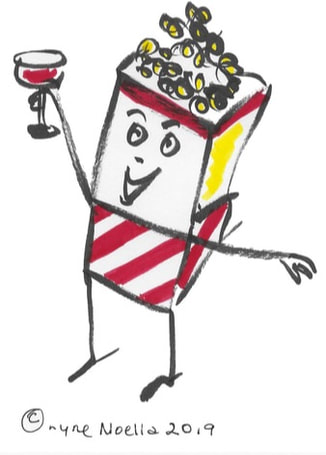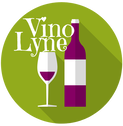 Let’s get one thing straight: Nobody can say you’re wrong about what you like and what you don’t like in a wine. Your palate, or your appreciation of taste and flavor, is your own. You are entitled to your entire range of tastes, feelings and perceptions of every wine that meets your lips: red, white, rosé, still or sparkling. When I engage in a conversation with friends about wine, they sometimes take a step back and say, “I don’t know a thing about wine.” That’s when I come back with, “You know what you like and what you don’t like, right?” Yessiree, we all do. And that’s what gives us all the courage to take a thrilling worldwide tour that connects us with winemakers, cultures, cuisines, vineyards, mad scientists and, best of all, friends. To join me on an exciting wine tour (or conversation), I have only two requirements: Pay attention to what you are drinking and form your own opinion. Paying attention is essentially exploring a wine with your senses and a curious, open mind. Oh sure, you may know something about the wine you are drinking, such as the country of origin, the grapes, the style, the price, or the winemaker. Or you may know nothing at all. It’s fine either way. In many cases, it’s actually better not to know a thing about a wine prior to meeting it. Or should I say tasting it. This is known as “tasting blind” or “blind tasting.” When tasting blind, you can approach the wine on its own merits and with no preconceived notions. And it can be thrilling. Or a misadventure. No matter the outcome, you will learn something. Blind tasting is akin to going to a movie without having read a review. Let’s say it’s a Saturday night and you are out with a friend at a movie theater sharing popcorn. Somebody dims the lights and your movie starts. Perhaps you look forward to experiencing a range of emotions. If you’re like me, you secretly hope there will be tears involved as you gain insight on the human condition. In the darkness of the movie theater, you check your jacket pocket and squeeze the pack of tissues in anticipation. Or your goal is to watch the movie just for fun, expecting no more than satisfying entertainment and some belly laughs with your friend. If it’s an American film, the movie will typically open with a dramatic scene and the main characters will be introduced within the first few minutes. You will whisper a few thoughts about the movie to your friend as the story unfolds. The plot will graduate to a climax, then wind down to what you hope will be a satisfying ending. This theater scenario is like wine tasting in that: 1) When tasting wine, we are hoping for a good or even great experience. We may or may not know about the wine prior to bringing the glass to our lips. If we haven’t had the wine before, there is an element of anticipation. What will the wine be like? We begin gathering information visually as we inspect the bottle. Our investigation continues as the wine is poured out of the bottle and into the glass. 2) Enjoying wine is often done with family and/or friends and there is often food involved. It doesn’t have to be popcorn, like in a theater, but that could be fun too. You might go out to enjoy the glass of wine (like you would watch a movie in a theater), or you might open a bottle at home (more like the movie streaming experience). Either way, you are in for the good life. 3) The enjoyment of wine, like a movie, involves a beginning, middle and end. You bring the wine to your lips. The aroma wafts to your nose. Suddenly your mouth is awash with flavor. As your tongue and nose get acquainted with the wine, you experience the equivalent of a movie’s storyline. The plot thickens. Secrets are revealed. Think of the main characters of the wine as the grapes that have been grown, fermented and bottled. Or the characters can be the individuals working in the vineyard and the winemakers in the cellar. The peak of the wine’s flavor in your mouth is like a movie’s climax. Then you swallow the wine, the taste subsides and the experience is over. The end. The second part of my requirement for our wine tour together, forming your own opinion, means asking yourself how you feel about the encounter with the beverage that’s in your mouth. That equates to coming out of the theater with a thumbs up or a thumbs down. It should also involve something we all love to do, whether it’s a movie or a glass of wine: Talk about it. As we explore wine together, you will gain insights on the human, elemental, and market conditions of wine. Enjoying and talking about the experience of wine is the sweet outcome of understanding that you are entitled to an opinion about this form of entertainment and that nobody can say you are wrong about what tastes good, in your humble opinion. This article is an excerpt from my upcoming book on how to get to know and fall in love with a bottle of wine. Stay tuned for updates on the book, which will be published this fall. -- Lyne Noella
0 Comments
Leave a Reply. |
AuthorLyne Noella Archives
October 2022
Categories
All
|


 RSS Feed
RSS Feed
